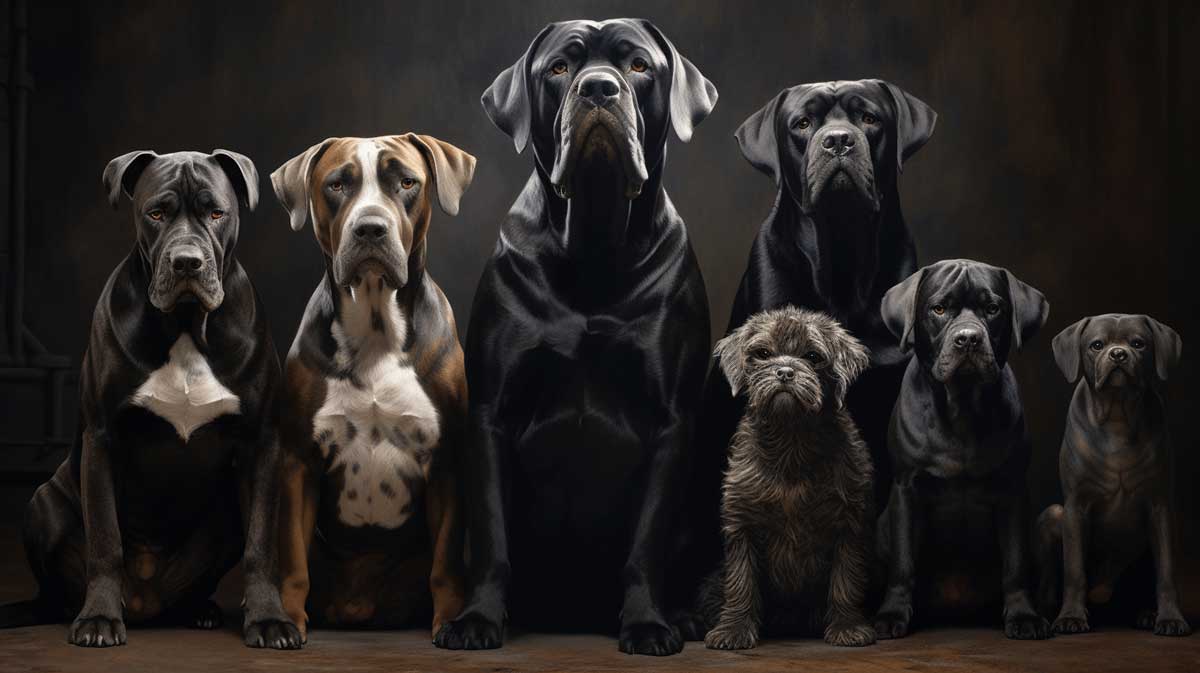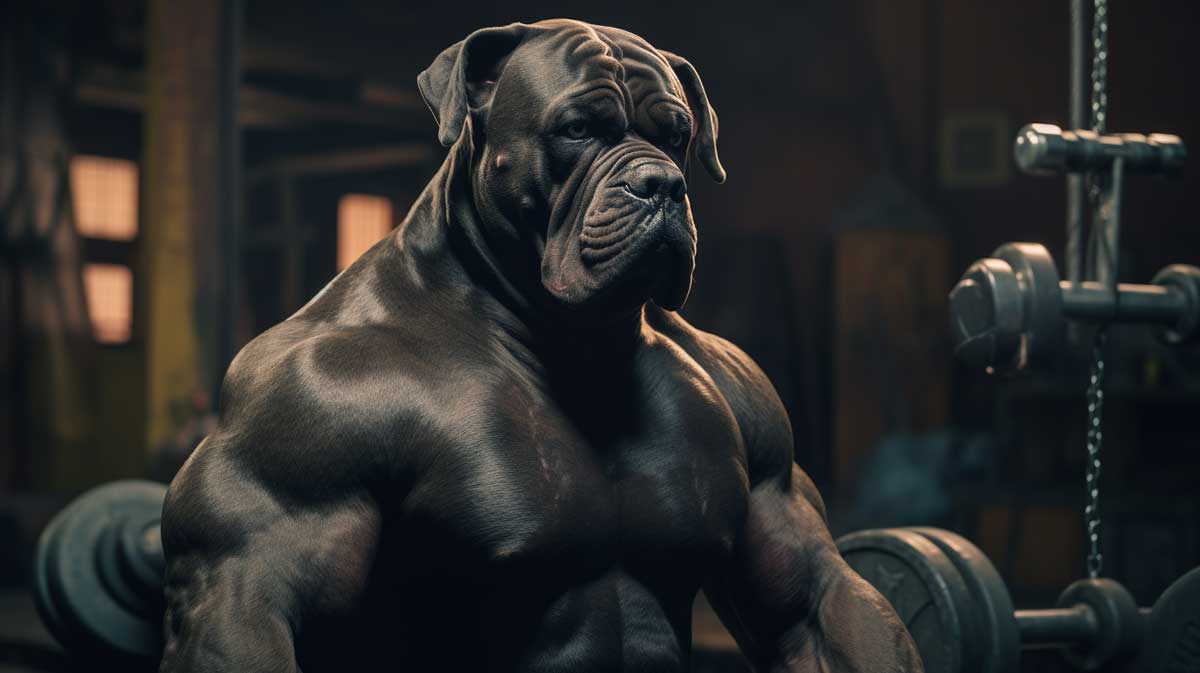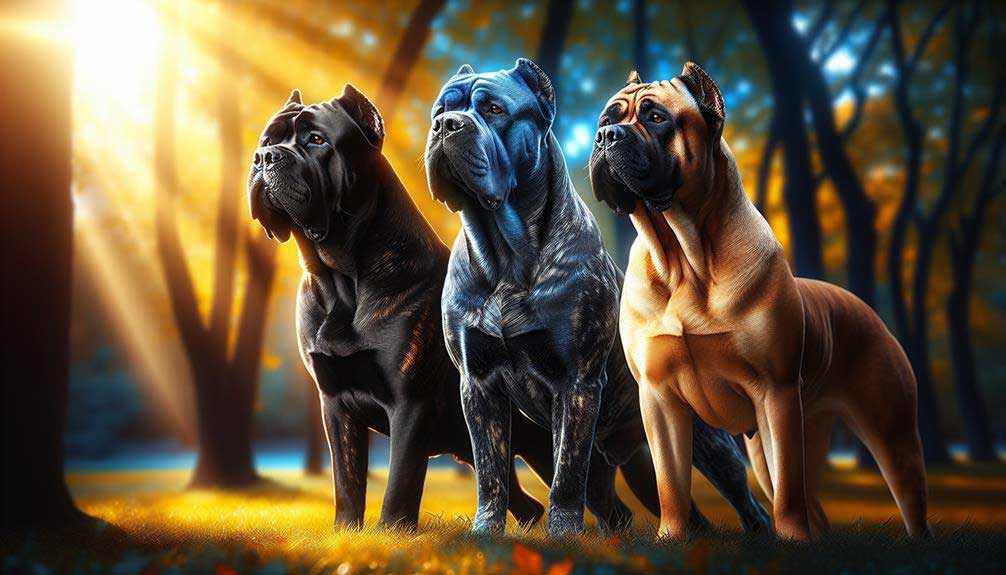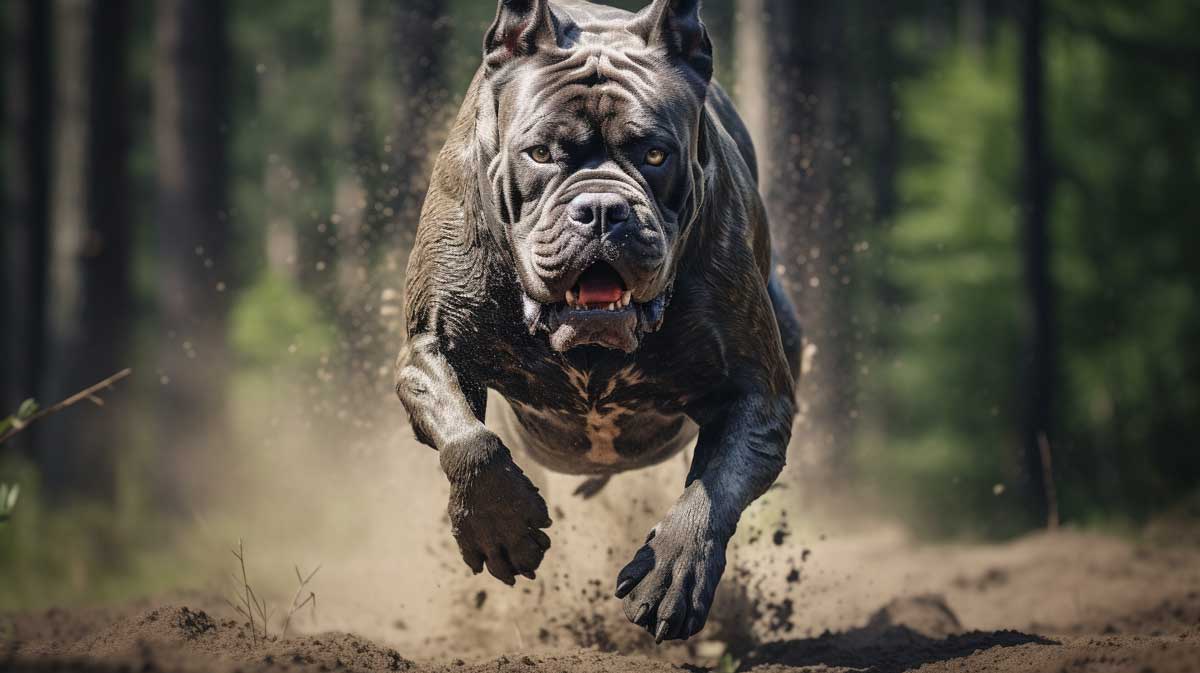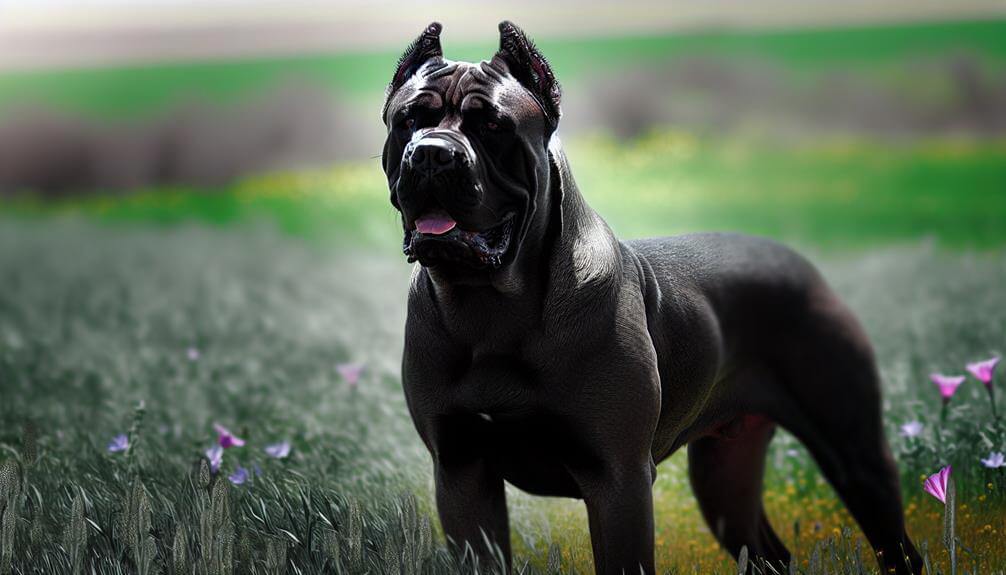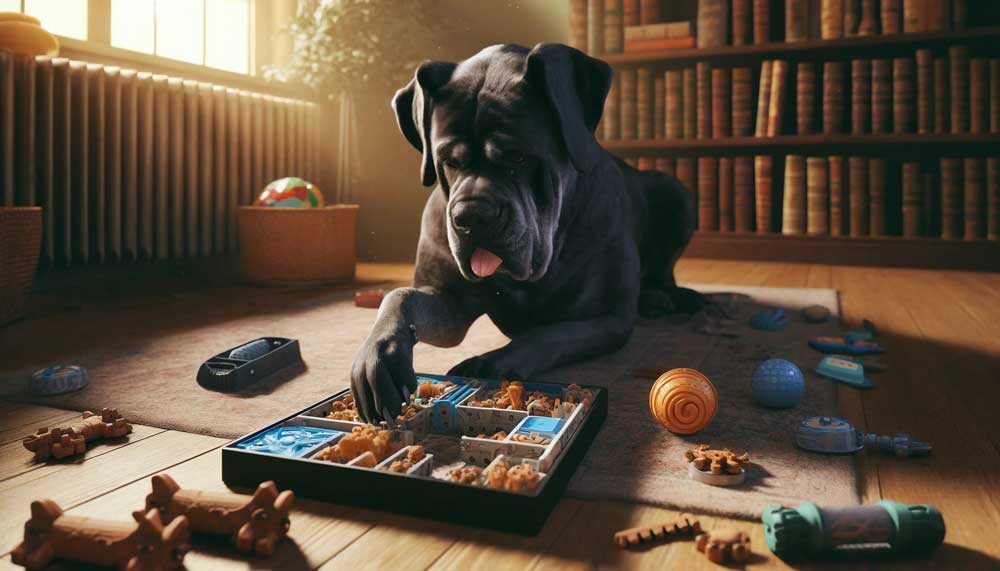The Cane Corso is among the most famous Italian dog breeds. It is considered as a protector. The dog is mainly used in guarding farmyards; intruders won’t dare cross the fence with a Cane Corso watching.
The face is intimidating. If a Cane Corso doesn’t know you, it treats you like an intruder. Don’t let its deliberate, slow movements mislead you; it is clever and strategic. Of course, it depends on the training, but you will rarely find an under-trained Cane Corso. While all dogs show loyalty to their masters, this dog does it best. You cannot trick it into prioritizing you over the owner. If you are considering acquiring Cane Corso puppies, first think of training.
Training
Cane Corso’s grow extremely fast. If you are not keen, the puppy will be a misbehaving adult in a few months. We often fail when it comes to training our dogs concerning purpose. The objective of training your puppy should be to instill discipline and help you with simple tasks. The training should make sense to the dog. It is not what you enjoy your dog doing or imagining; it is intelligent and active.
“Positive-only” is a common technique in dog training. Of course, it works, and your dog obeys, but is that what you want? The training involves using treats to motivate a dog to obey. It works 100%. However, your dog is trained only to obey when there is a treat. In this case, the dog is in charge of obedience; you have to reward for obedience, always.
This defeats the purpose and logic of training. Animals naturally respond to treats—in this case, rewards. It is not much training. Moreover, it does not instill discipline or make your tasks easy. If anything, it enhances the dog’s dominating behavior.
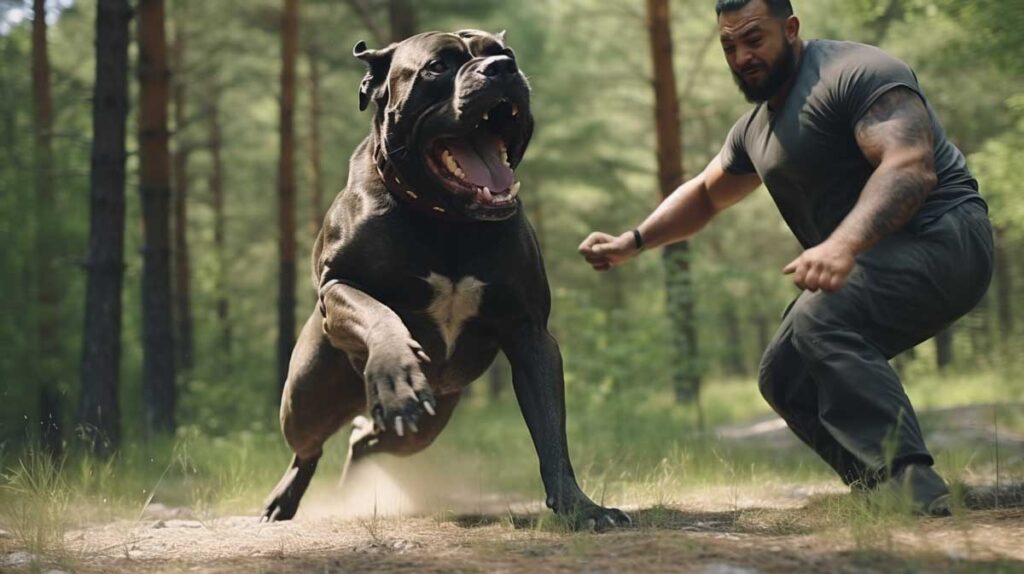
Temperament
A Cane Corso puppy will be cute when you bring him home; however, remember that it will soon grow into a large dog. Cane Corso’s are known for their immense size. This type of dog is controlling and domineering. You should take proper steps to curb the strong will and control the nature of your Cane Corso because it will become a real problem. If you don’t stop and let the behavior have its way, it will run your home. This does not mean you should be brutal with it; be friendly but firm on your boundaries.
When you bring the puppy home, it will be testing the boundaries and watching how you react. Remember, Cane Corso’s are strong-willed and intelligent; the puppy will know where to push. You should take note of dominant behaviors; do not assume the growling or snapping when you want to move it. Cane Corso puppies growl when someone gets too close to their food or toys. If you entertain such behavior when he is a puppy, you are in trouble when he becomes an adult. You should love your dog and give them the best, but don’t let them control your home.
Tip: Be sure all family members are comfortable with large dogs before buying a Cane Corso.
Sleeping
In wolf packs, the leader sleeps on higher ground. It depicts authority and protocol in the pack. Cane Corso is a unique breed but still a dog. It is not immune to the dog instinct for leadership and authority. He will interpret it as equality if you let it sit on your bed uninvited. Don’t let it sleep on the couch, either. Cane Corso’s fond of using such opportunities to gain control of a home. Find a well-designed crate and make the interior comfortable. Make it sleep in the crate beside your bed.
Of course, he will cry, but don’t fall for the trap. You will never reverse the decision if you let it out once to sleep on your bed. Caress it to show he is not alone. He will cry for a while, then give up and go to sleep. This is a big win! A crate shows you care for the dog and is protective; it takes care of morning surprises on your carpet.
Potty training
Potty training is crucial for a puppy. Puppies need to potty more frequently after eating, after playtime, and before or after sleep. It can be easier if you have specific feeding schedules. Consistency is key. Never allow the puppy to potty in the house; if it does, it is your mistake. You should be conscious of its activities while indoors. If you cannot watch it, then put it in a crate. Always accompany your puppy outside when it is time to potty. Find a related word and use it consistently and only after placing the puppy down in a specific area in the yard. It will eventually relate the word with time to potty.
You might want to consider a different breed if you live in an apartment. Cane Corso’s training largely depends on outdoor activities. Moreover, it will soon grow into a large dog, which requires enough space for running and playing. Cane Corso is a yard protector; restricting it indoors underutilizes the dog.
If you are happy to have a Cane Corso as a family member, you must realize that their behavior is one of the main reasons people take them to shelters or rescue organizations. It is not because the Cane Corso is more challenging to train than other breeds.
Cane Corso is a large dog who must be especially easy to handle, or things can get out of control.
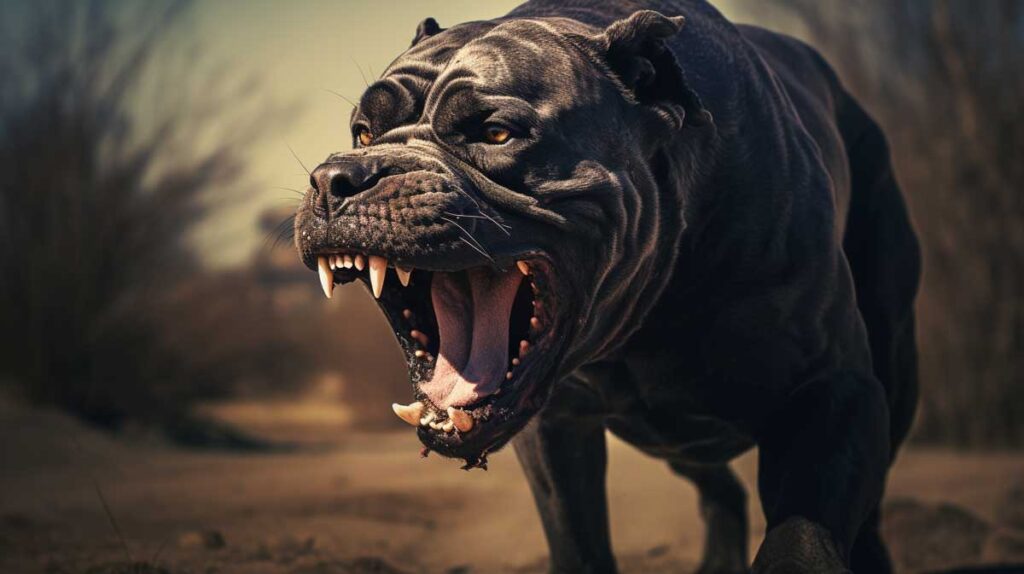
How do you keep your Cane Corso in control?
- Early socialization. Puppies must be taken out to learn what the world outside their kennel looks like. This must be done after the last set of vaccines. Some think even earlier, but then infectious disease is dangerous.
2. Teach bite inhibition. If your Cane Corso grabs you with his teeth while you play, tell him “no,” remove your hand, and stop playing. The loss of his companion will be punished for him.
3. Leadership. The best way is to start with obedience classes. Positive training with no force is best for your Italian mastiff.
4. Continued socialization. You should continue socializing with him as an adult to reduce his shyness and lessen the chances of him developing aggression toward other dogs. The best way to do that is by introducing him to other people and dogs in your everyday walks.
5. Never encourage aggression. Cane Corso is a natural guardian and is usually suspicious of strangers and other animals. You do not need to teach them to be wary of new situations; excessive praise or encouragement may lead to an excessively aggressive dog.
6. Neutering is not the answer. The surgery may be effective in controlling aggression with other dogs, but it is never effective in controlling aggression with people.

